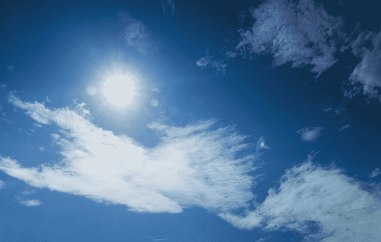Warmer? Yes. Man-made? Well... (NOT SURE WHICH SECTION THIS SHOULD GO!!!)
From 2001 to 2004, Kevin Safreed and other meteorologists like him in the United States military were very busy. Their job was to look at data and choose the best place for the US Army to build bases in Afghanistan, Uzbekistan, Kazakhstan, and Iraq. Wind currents, rainfall, and general weather patterns were to be gathered, collated, and eventually analyzed to determine which locations could best serve the soldiers and their equipment. In many respects it was a nearly impossible mission.
"There is so little data on so many parts of the world, it was very difficult to select a good location," he told this reporter. It seems that the places where the military is most needed is in mostly uncharted territory, literally. Many of the charts that were made were the first ever of any detail in these areas of the Middle East.
The earth has always had periods of cooling and warming. In 1816, there was no summer in Germany and food riots broke out. Snow fell in Albany, New York, in June of that year. Ice was seen in rivers in July and August in Pennsylvania. The winter of 1829-1830 was one of the coldest ever recorded, and the three winters prior to that were also bitterly cold. It was a mini-Ice Age and sent thousands of immigrants to America's shores. In a large area of the UK, February, 1947, was perhaps the coldest winter ever recorded, and most records began in many areas of Great Britain in the 17th century.
But the same cannot be said for most of the rest of the globe. "When we hear that 7 or 8 of the hottest summers in history were in the last decade, that isn't really telling us much," continued Mr. Safreed. Data collection on weather in the USA wasn't begun in many areas till 100 or 150 years ago. He has also spent a good deal of time in Germany and said that records are spotty in many areas here as well. "There is not as much data and records in America or Germany as most people would be led to believe." Los Angeles was nothing until the growth of Hollywood in the 1910s, Florida was a swamp until another 30 years after that.
"As a scientist I'd like to see a much larger sample size, perhaps 500 years or more, before I make such generalizing statements. Is it getting warmer, yes it is, at least where we have been keeping records. Is it man's fault? That isn't nearly as certain." And this view is held by many Americans, though for most Europeans, they believe that man has clearly expedited the process of global warming.
But Mr. Safreed and others are not completely convinced, though not unpersuadable either. "The question for me remains, if we weren't using fossil fuels so much would the earth be getting warmer. I actually believe it's quite possible. I also think we should hedge our bets, and reduce where we can-without destroying our economies in the meantime."
Mr. Safreed told this reporter that there are quite a few meteorologists who share his view. It is a minority, he admits, but more than a couple. He feels as if they have been completely drowned out by the media and their emphasis on 'Climaggedon'. "One swallow does not make a summer," he says, pouring himself a cold drink. "Nor does a decade of unseasonably warm or cold weather signal a trend. We just can't be sure, not entirely, not yet."















































